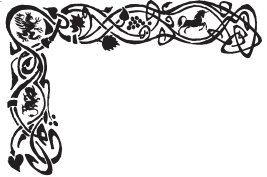







Weird 3
I always liken Frank Zappa’s scurrilous musicals – Broadway the Hard Way, Joe’s Garage – to Greek comedies like Aristophenes’ Lysistrata. Whereas the tragedies may be psychological, the comedies are explicit and raucous. Those two sides of reality make a nice ontological whole (Greek on, being). There’s even a connection with chivalric virelai (see Alternates 4), where you hear these pure and elevated refrains on the comely maiden’s charms. The virelai tradition is an elevation of erotic desire in a courtly setting. The grounding or root of that culture is in the mythical dragon, the damsel in distress, the craven postulating wizard, the pure knight.
The dragon is a thing of primal power that is often trapped by the postulating wizard into loathsome ways that must be vanquished by the heroic knight. But in its psychological guise, the dragon is the rhythmical force that joins man and woman, for woman is the serpent (Eve, Hebrew Hevia of Evia, female serpent).
The power isn’t pleasure (feeling) or thinking (reason) but in the swaying between one and the other (see Jung Weird 1). Therefore, that reality or ontology (being) is in a state of classical balance, as with the raucous contrast between comedy and austere tragedy in ancient Greece – and this raucous tradition continued throughout the Middle Ages.
The dragon of misrule must be vanquished, whereas the serpent craves acceptance and with it the power of being. Zappa was quite preoccupied with ontology, and it may have been his scatological, explicit lyrics were a way of pointing-out the falsity of modern life. The serpent is the powerhouse that reconciles these things.
Psychologically, the inner life can reflect the outer rhythmic strength of the underworld (see Greek myths Aspects). The serpent is of the earth, and reconciles thinking and pleasure with the unthinking cyclical nature of being. It’s obvious that, unless you’re a robot-intelligence or a pleasure-droid, the scatological and explicit are a part of your being. Zappa’s musicals seem to become like the serpent, taking delight in their devilish disdain and just “sticking it out”, giving the thumb to “the Man”. In Jung’s view, unless Man unites with the serpent, he is forced to make a pact with him,
But I forestalled him by uniting myself with the serpent, just as a man unites with a woman.
By “pact” one can assume something fiendish, maybe something like the labyrinthine trap I outlined previously. The ego-monsters cannot unite with the unconscious, so the serpent will manifest itself as a psychosis, a world-devouring labyrinthine dragon-spawn (CH 4).
Rather than being sensual, as in the normal state of being (a balance between thought and feeling), there is a weirdly sexual pulse to appliances, as in Zappa’s Joe’s Garage. Instead of the sensual being a type of balance, most things become a type of sex-by-proxy. The ego runs amock and starts to edit genomes. That is, it is manipulating sex-cells or indulging in sex-by-proxy. They obviously think that they can consciously manipulate sex, but they forget that the body and mind are balanced in a classical sense.
There is no single, logical truth that can be solved in a straight-line way. There is strong, rhythmical symmetry and intertwining of opposing forces (even DNA is intertwined, actually.) If you solve that with straight-line thinking, you will upset the strong, unknowable essence or being in the process.
The body and mind are products of rhythm, balance and symmetry, not of DNA. Where does this come from? It comes from the universe, as I’ve previously stated (Weird 3). We don’t live in limbo. Most of the products of our minds and the contents of our bodies are of the universe. The information contained in DNA has no balance, proportion, symmetry, no consciousness, no unconscious.. therefore no psychological urge, no Apollonian vision. All these are classical products of the universe.
The twisted egotists like our friend Richard Dawkins can’t see that – in their labyrinthine trap – the dragon of misrule seems to bend them to its psychotic will. They have no humour or irony, since that’s another classic, comedic value denied them. They have no knowledge of the ideal, of the power of the Venus body, born of a clam shell.
The power of the unknowable rhythm that unites thinking and feeling, the two aspects of reality or being. Without that power, there is no sensuality and hence no classical world born of the gods of fertility, of joyous gaiety, of darkest night and of searing vision. The power is of the earth and so bound with the goddesses of revival; of Proserpine and Ceres (spring), of Daphne (laurel) and of Artemis (moon), of a strength that is ageless and without real limits – of Vulcan and Pluto.
Dark is the force that renders true brio; Zappa in full flight is well out of order (pick one at random – I’m So Cute) because the two go together. One has to step out of line on the sterile catwalk of straight-line life to death if one is to regain the power that is rightfully ours (CH5 “Hyperdrive”). The power is of the earth, of its seasons, of its fruit; the power of the unconscious that connects us to the serpent. That power is under multi-level threat, not least from a social-consciousness whose sole operating parameter is “now” in the social state of man and woman.
I don’t wanna be a killjoy; there may be some place for these things (in the political sphere, say) but they cannot be allowed to dictate to the deep unconscious of Man that is his true being. The power of erotic urge and flaring vision that give our feelings and our reason a rhythmic sense of being. For the erotic is born of deep rhythm; those who worship at the shrine of DNA are false acolytes whose ego-lust blinds them to the true grace and power of woman. Only that can inspire true lust and give sense to reason and feeling.
Margaret Brundage’s covers to Weird Tales are visions that flame from the primal sense of femininity, which is lust. Their allure is timeless and part of the heritage of Man. The curves and crevices of a woman speak of the rhythmic, regenerative power of nature, of Diana the huntress and moon goddess, of blood and rebirth. For none of this is contained in DNA; it is in the deep unconscious and the immortal spirit of earth.
Such alluring muscularity is Weird Tales at its apogee. It is a thing of the earth and of the primal forces that are contained in unconscious urges. “It’s weird in there”, to quote Grace Slick, because the nature of our being is not as “they” say. Allure is all, grace and symmetry are all; from this come the erotic urgings of Dionysus and the vision born of Apollo. All else is as nought.